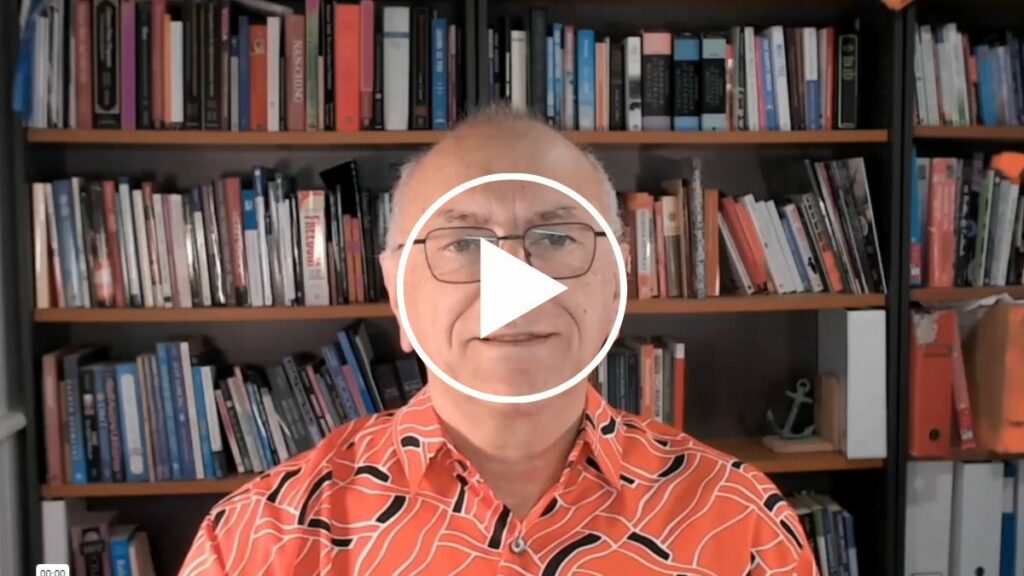When we feel ill or experience pain, our first thought is often to visit a general practitioner (GP). This makes perfect sense, as GPs have spent years studying the human body and learning the best ways to heal it. However, before modern medicine, people relied on alternative methods of treatment that harnessed the body’s natural ability to heal itself.
As mentioned before, alternative methods, rooted in centuries-old traditions, are built on the belief that the body can heal itself when balanced and properly stimulated. While modern science demands empirical evidence, these therapies focus on overall well-being, personalized treatment, and the interconnectedness of mind, body, and spirit. This holistic perspective complements the often symptom-focused approach of conventional medicine, as it offers a different path to wellness.
Despite their common goal of healing, there is sometimes a disconnect between these two approaches, as most GPs feel skeptical about the effectiveness of acupuncture and other alternative therapies.
In this blog, we’ll explore how you, as an acupuncturist, can demonstrate the value of your expertise in patient care and how both professions can collaborate to enhance overall patient well-being.
The Evolving Healthcare Landscape
There’s no denying the growing trend of people wanting to integrate alternative therapies with conventional medicine, despite some skepticism towards acupuncture.
According to Complementary Medicines Australia, over 70% of Australians used complementary medicines in 2022-2023, and this rate has remained consistently high over time.
These statistics highlight the public’s strong interest in holistic and alternative treatments. One reason for this is that these approaches offer a comprehensive way to address health concerns.
Alternative therapies focus on treating the whole person, not just specific symptoms, and often involve natural, less invasive methods. Patients are drawn to the potential for fewer side effects, the emphasis on prevention and overall wellness, and the personalized care these treatments provide.
Additionally, the growing awareness and evidence of their effectiveness in managing various conditions contribute to their increasing popularity.
Understanding the Role of GPs and Acupuncturists
With the growing interest in complementary alternatives, some might wonder if this overshadows the role of GPs in healthcare. The answer is no, and here’s why.
GPs play an essential role in the healthcare system. They diagnose illnesses, manage chronic conditions, offer preventive care, and coordinate with specialists. As the first point of contact for patients, GPs have years of science-backed training in early detection and treatment of health problems. Their ability to manage complex health needs makes them indispensable in a patient’s healing process.
However, not all medical treatments provide the level of comfort and efficacy that patients seek. Some patients find conventional treatments lacking in addressing their emotional health; others may become reliant on medications, and some experience side effects.
This is where the unique and holistic approach of alternative treatments, especially acupuncture, comes in. Acupuncture focuses on treating the whole person, offering a natural and less invasive method that emphasizes overall wellness and personalized care. By integrating both GPs and acupuncturists, patients can benefit from a more comprehensive and effective healthcare experience.
Unique Contribution of Acupuncturists

Acupuncturists offer a unique perspective on the healing process. They focus on restoring the body’s balance and addressing underlying imbalances in the body’s energy flow (also known as Qi) rather than just treating symptoms.
Through the strategic insertion of thin needles at specific acupuncture points, they aim to unblock energy pathways and stimulate the body’s natural healing mechanisms. This approach targets the immediate symptoms while also addressing the root causes of illness or discomfort — bringing a more holistic approach to healing.
By restoring balance, acupuncturists play a crucial role in optimizing the body’s self-regulating abilities. This approach helps patients achieve long-term health and well-being without the need for interventions that may carry the risk of side effects and adverse reactions. Their role extends beyond treating a single ailment, focusing on supporting the overall balance and harmony of the body-mind system.
The Benefits of Collaboration
That being said, if both GPs and acupuncturists work together in a patient’s healing process, the results can be truly transformative.
Here are a few benefits of this collaboration:
Enhances Patient Care
Acupuncture can be an effective complementary treatment for various conditions, enhancing patient care in several ways. For example, in the case of chronic pain management, acupuncture can provide significant relief for conditions such as back pain, arthritis, and migraines.
When combined with the GP’s conventional treatment plan, acupuncture can reduce the reliance on pain medications and improve overall pain management. Similarly, acupuncture has been shown to alleviate symptoms of stress, anxiety, and depression, offering patients additional support in managing these mental health concerns alongside traditional therapy or medication.
Provides a Holistic Approach
Combining the perspectives of GPs and acupuncturists leads to a more comprehensive treatment plan that addresses both the physical and energetic aspects of health. For example, in the management of mental health issues like anxiety and depression, the GP may prescribe medication or therapy to alleviate symptoms and provide immediate relief.
Meanwhile, the acupuncturist can focus on restoring emotional balance and reducing stress through acupuncture sessions. Acupuncture has been shown to regulate the body’s stress response, promote relaxation, and improve mood by balancing energy flow. By integrating these approaches, patients receive a more holistic and multifaceted treatment plan that addresses the root causes of their mental health concerns, leading to improved overall well-being.
Helps Reduce Healthcare Costs

Collaboration between GPs and acupuncturists also leads to reduced long-term healthcare costs, particularly for patients with mental health issues like anxiety and depression.
For instance, integrating acupuncture into the treatment plan for anxiety and depression may lead to decreased reliance on long-term medication use.
Acupuncture has been shown to alleviate symptoms of anxiety and depression by regulating the body’s stress response and promoting relaxation. By reducing the need for high-cost psychiatric medications and therapy sessions, patients can experience significant cost savings over time.
Moreover, addressing the underlying imbalances through acupuncture can help prevent the worsening of mental health conditions, reducing the need for costly interventions or hospitalizations in the future.
Building a Bridge: Strategies for Acupuncturists
It’s evident that a collaborative approach leads to positive outcomes in patient treatment. If acupuncturists and GPs genuinely care about their patients’ welfare, teaming up should be a priority.
Sometimes, GPs hesitate to initiate collaboration with acupuncturists because they may doubt whether acupuncturists truly understand what patients need, what GPs need, or they simply lack opportunities to work together. With that in mind, here are four tips (personally recommended by a GP) on how acupuncturists can bridge that gap.
Show That You Identify or Know What the GP’s Problem Is
The first thing to do to get the attention of your patient’s GP is to show that you identify or know what their problem specifically is. GPs often encounter patients with complex health needs, including chronic pain, stress, and mental health issues, which can be challenging to address using conventional medical approaches alone.
By showing that you are aware of what these problems are from the beginning, it lays the foundation for effective collaboration as it shows that you are equipped with the right knowledge and experience in recognizing the gaps in patient care.
Demonstrate That You Understand the GP’s Frustrations
The next thing you should do is show GPs that you understand and empathize with these frustrations. GPs often face limitations in addressing chronic conditions solely through pharmaceutical interventions, leading to patient dissatisfaction and ongoing health issues.
But when you demonstrate that you understand these frustrations, you show GPs that you grasp the need for a more holistic approach to patient care. As a result, it indicates a shared commitment to improving patient outcomes which can inspire GPs to lean towards collaborative efforts.
Offer a Solution
And because you do recognize these problems, the next thing that matters is if you can prove to GPs that you can offer them a solution based on what you do best through acupuncture.
When acupuncturists demonstrate their ability to offer solutions to GPs’ challenges, it instills confidence and reassurance in them. This proactive approach makes GPs feel supported and valued, as it shows that the acupuncturist is aware of the issues at hand and equipped to provide effective assistance.
GPs are more likely to trust and collaborate with acupuncturists who can offer viable solutions, as this demonstrates their competence and expertise in complementing conventional medical treatments. This proactive stance convinces GPs that acupuncturists are qualified to work collaboratively with them in treating their patients, fostering a strong and effective partnership focused on delivering the best possible care.
Invite the GP to Refer their Patients for Acupuncture Treatment

Finally, acupuncturists should actively invite GPs to refer their patients for acupuncture treatment. This invitation makes GPs feel respected, supported, and valued as it demonstrates the acupuncturist’s willingness to collaborate and contribute to the patient’s care. It assures GPs that the acupuncturist is committed to a team-based approach focused on the patient’s well-being.
Moreover, besides the invitation to refer their patients to you, offer solutions or ways to keep GPs informed of their patients’ status throughout the treatment process. This gesture builds trust and mutual respect that convinces GPs that acupuncturists are truly qualified and committed to working collaboratively to improve patient outcomes.
Final Takeaway
Ultimately, the primary reason for acupuncturists to befriend their patients’ GPs isn’t only to bridge the gap between alternative and modern medicine but to ensure patients receive the treatment they truly deserve. In today’s changing economic landscape, it’s becoming increasingly difficult for patients to afford proper healthcare.
As experts in health and wellness, it’s our responsibility to make healing more accessible and comprehensive. We need to be willing to try new approaches, even if they’re unfamiliar to us if our goal is to truly provide the best possible care for our patients.
So, I invite you to take these tips and strategies, use them as your guide to connect with more GPs and enhance the healing experience for your patients.
DID YOU LIKE THIS ARTICLE? YOU MIGHT ALSO LIKE:
Holistic Healing: Integrating Acupuncture into Cardiovascular Care for Depressive Patients
Antidepressant Deprescribing: As an Acupuncturist, What Should I Do?





